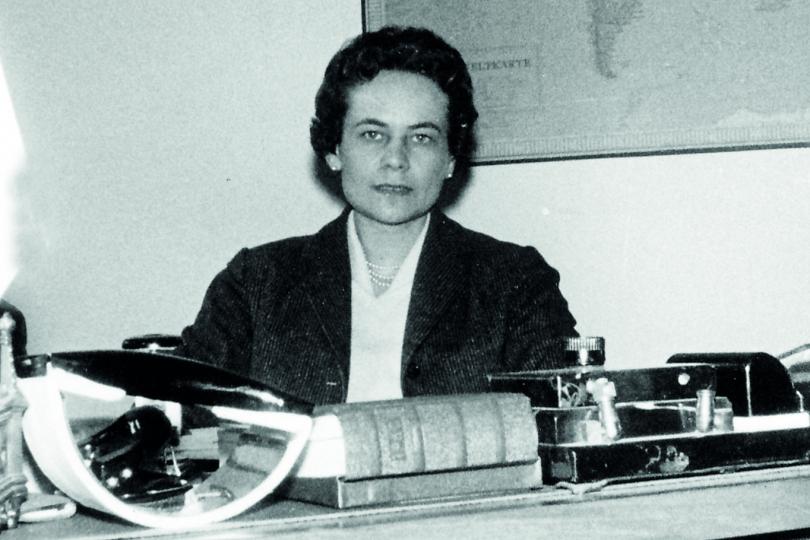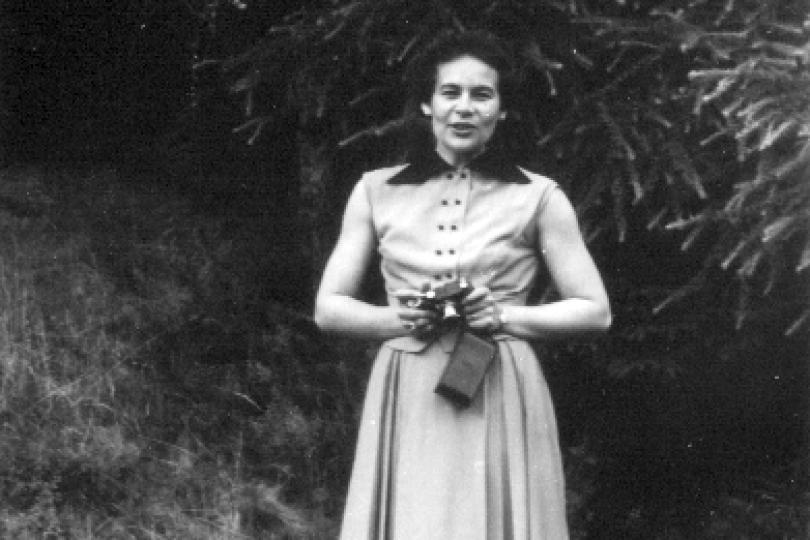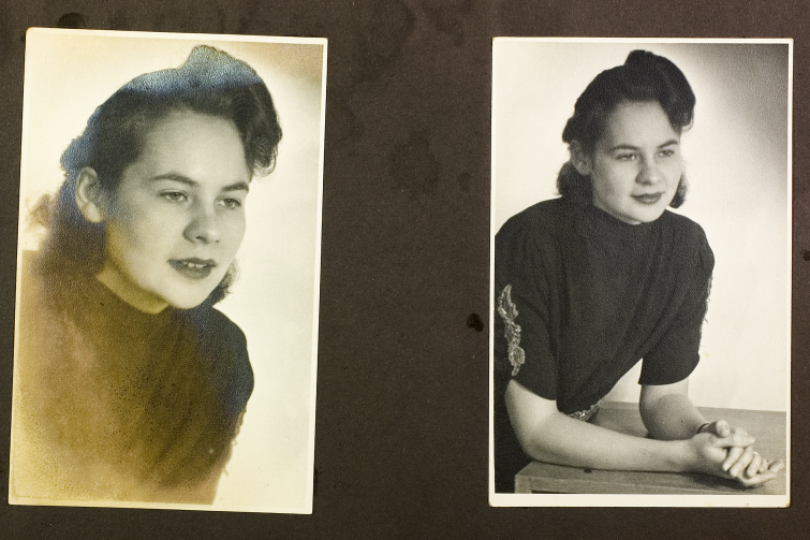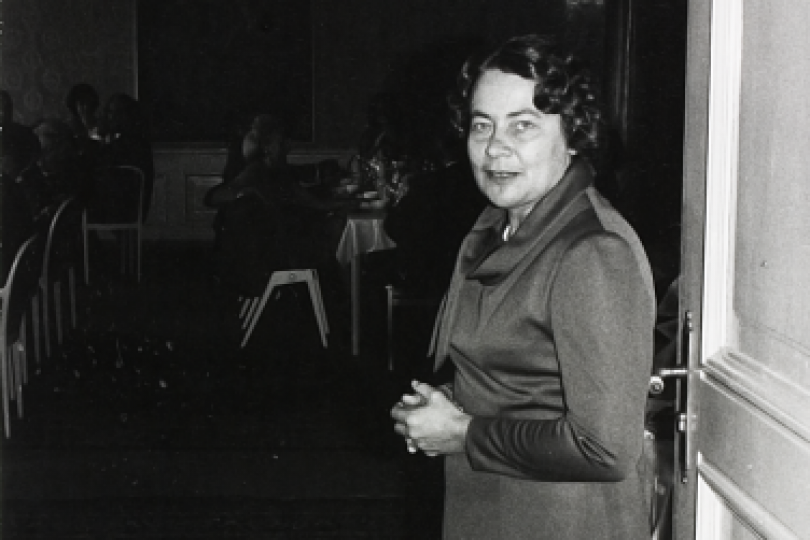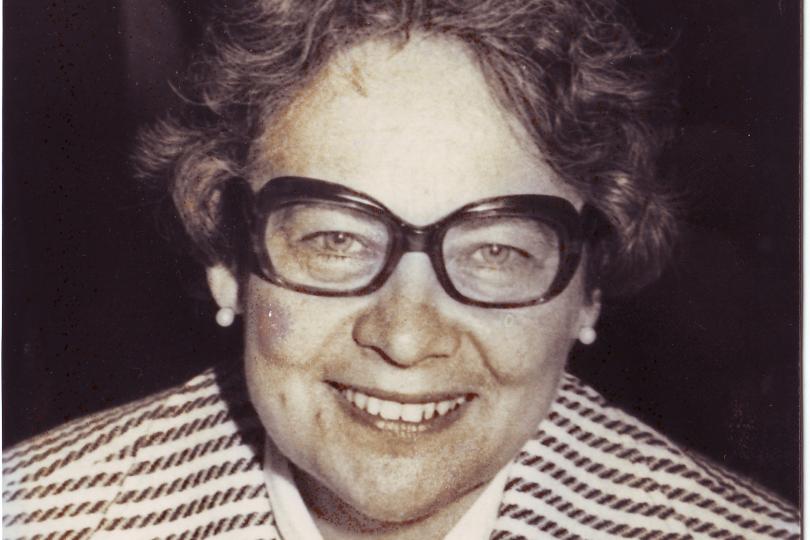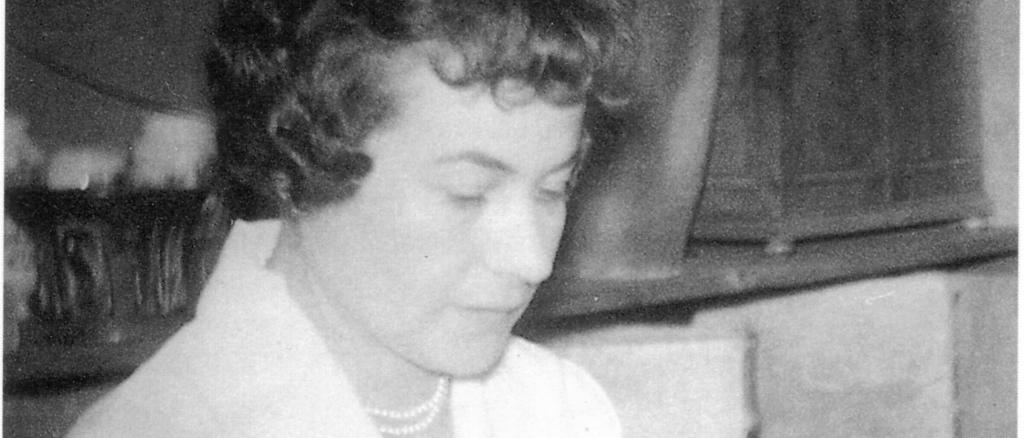
She also left all her assets to the Else Kröner-Fresenius-Stiftung, which is now among Germany’s largest non-profit foundations.
The desire to do good was manifest in her private life, shaping her decision to adopt five children. To this day, the results of Else Kröner´s tireless creativity continue to provide substantial benefits worlwide. Broadmindedness, interest in fellow human beings, courage and confidence in medical research were evident in all of her work.
Early Responsibility
The benefactor was born Else Fernau on 15 May 1925 in Frankfurt am Main. She was three years old when her father died. After his death, she and her mother lived in Frankfurt in the home of the chemist, Dr Eduard Fresenius, owner of the Hirsch apothecary and founder of the Fresenius company in Bad Homburg. The chemist, whose marriage was childless, cared for Else Fernau as though she were his own daughter. In 1944, Else Fernau started as an apprentice in the Hirsch chemist shop and made up her mind to study pharmacy. Two years later Dr Fresenius died – before she had completed her studies. Else Kröner together with her mother and a leading employee of the company inherited both the Hirsch pharmacy and the Fresenius company, which had been largely destroyed in the war and left with only a handful of staff.
At only 21, Else Fernau assumed responsibility for both the pharmacy and the company despite the advice of many to turn down the inheritance. The Fresenius company was heavily in debt, and all but 30 of the original staff of 400 had to be let go. Else Kröner succeeded in securing the company’s survival and, in the course of the following years, together with her future husband Dr Hans Kröner, consistently expanded the company.
In the mid-1960s, important and far-sighted business decisions were made that secured future development. Fresenius grew in the following decades, becoming internationally competitive and a leader in the areas of intravenous compounds and dialysis products. Until 1981, Else Kröner headed the company’s management. Following the company’s listing on the stock exchange, Else Kröner was chairman of the board of directors until her death on 5 June 1988.
The Biography
After two years of research, the historians Dr Michael Kamp and Dr Florian Neumann wrote Else Kröner’s biography. The impressive 256-page biography of this unusual woman was published in 2010 by the August Dreesbach Verlag (August Dreesbach Publishers).
